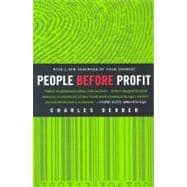
Note: Supplemental materials are not guaranteed with Rental or Used book purchases.
Purchase Benefits
What is included with this book?
| FOREWORD BY NOAM CHOMSKY | vii | ||
| ACKNOWLEDGMENTS | ix | ||
| INTRODUCTION: 911 GLOBE | 1 | (22) | |
| 1 GLOBALIZATION'S GHOSTS | 23 | (12) | |
| 2 THREE MYTHS | 35 | (24) | |
| 3 ONE WORLD UNDER BUSINESS | 59 | (21) | |
| 4 THE AMERICAN UMPIRE | 80 | (25) | |
| 5 THE WTO AND THE CONSTITUTION | 105 | (22) | |
| 6 THE UN, THE BARBERSHOP, AND GLOBAL DEMOCRACY | 127 | (16) | |
| 7 A GLOBAL NEW DEAL | 143 | (27) | |
| 8 PEOPLE POWER | 170 | (29) | |
| 9 SLEEPLESS IN SEATTLE | 199 | ||
| 10 GLOBAL DEMOCRACY AS ANTITERRORISM | 134 | (137) | |
| EPILOGUE: WHAT TO DO RIGHT NOW | 271 | (14) | |
| NOTES | 285 | (24) | |
| INDEX | 309 |
The New copy of this book will include any supplemental materials advertised. Please check the title of the book to determine if it should include any access cards, study guides, lab manuals, CDs, etc.
The Used, Rental and eBook copies of this book are not guaranteed to include any supplemental materials. Typically, only the book itself is included. This is true even if the title states it includes any access cards, study guides, lab manuals, CDs, etc.